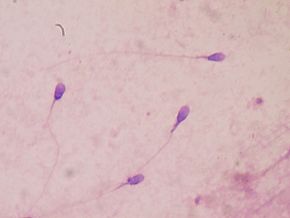 Eating your fruits and vegetables, especially a rainbow assortment of them, is associated with a lower risk of prostate cancer as well speeding up recovery in men who received radiation treatment for prostate cancer.
Eating your fruits and vegetables, especially a rainbow assortment of them, is associated with a lower risk of prostate cancer as well speeding up recovery in men who received radiation treatment for prostate cancer.
Two recent studies by the same group of Australian researchers found that certain micronutrients found in foods are lower in men with prostate cancer (compared to healthy men). These are lycopene, selenium, lutein, lycopene, α-carotene, β-carotene. Lycopene and selenium appear to be especially important.
Tomatoes and tomato products (e.g., tomato sauce) are an especially good source of lycopene. Other lycopene rich foods are: watermelons, grapefruits, guava, melons, papayas. Selenium rich foods include Brazil nuts, seafood, organ meats, beef, pork, chicken, turkey, and eggs.
From Medical Xpress: Rainbow of fruit and veg the best prevention against prostate cancer
Men who consume colorful fruits and vegetables on a regular basis are less likely to be diagnosed with prostate cancer (PC), according to new research by University of South Australia scientists.
A rainbow of foods rich in certain micronutrients helps to prevent prostate cancer (PC) as well as speed up recovery among men who undergo radiation treatment for the disease. ...continue reading "Certain Nutrients Associated With a Lower Risk of Prostate Cancer"

 Reading the following study, I thought to myself - OK, once again someone is testing a supplement, but generally studies find that supplements don't do as well as real, actual foods in whatever is being tested. In this case, a supplement containing lycopene, which is found in tomatoes,
Reading the following study, I thought to myself - OK, once again someone is testing a supplement, but generally studies find that supplements don't do as well as real, actual foods in whatever is being tested. In this case, a supplement containing lycopene, which is found in tomatoes,